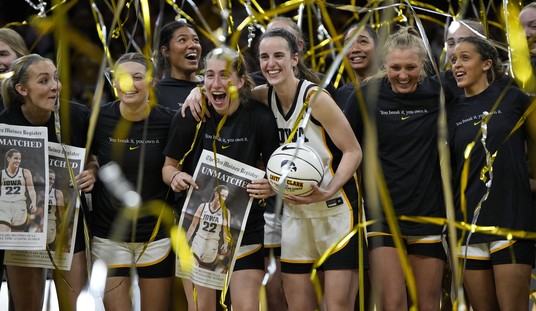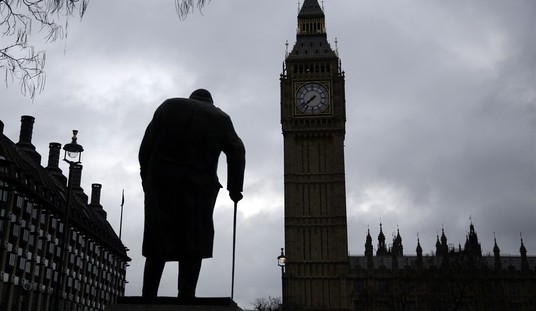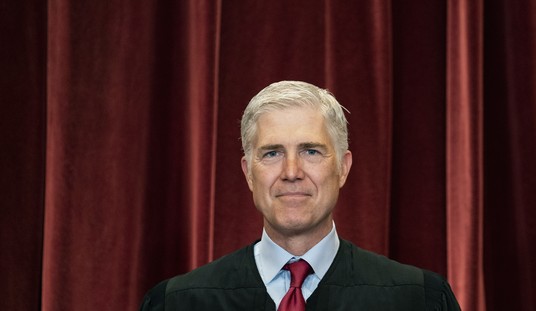Democratic Lt Governor Gavin Newsom traveled to Texas to find out for himself why jobs are moving from California to the Lone Star State.
“I don’t see this as a partisan issue,” Mr. Newsom told reporters before the group met with Texas Republican Gov. Rick Perry. The former San Francisco mayor has many philosophical disagreements with Mr. Perry, but he admitted he was “sick and tired” of hearing about the governor’s success luring businesses to Texas.
Hours after the legislators met with Mr. Perry, another business, Fujitsu Frontech, announced that it is abandoning California. “It’s the 70th business to leave this year,” says California business relocation expert Joe Vranich. “That’s an average of 4.7 per week, up from 3.9 a week last year.” The Lone Star State was the top destination, with 14 of the 70 moving there.
The attractiveness of Texas came down, analysts said, to two things: it lacked the red tape and taxes in California. But whatever insights Newsom comes away with, they are unlikely to lift the gloom any time soon. The Central Valley Business Times says that unemployment will remain high in California until at least past 2013, citing a report from the Business Forecasting Center at the University of the Pacific. The Contra Costa Times also says the State continues to hemorrhage jobs. An economist said, “If government job losses were counted, it would have been worse.”
The jobs that do become available they are often in skill areas different from those who have been laid off. They can’t find work in the same fields they came from. For most, they had lower their expectations.
After being out of job for more than a year, Julia Jeanluis, a former medical assistant from Rancho Cucamonga, said she is ready to play their game.”I’m willing to go down in my pay just to get into someone’s door,” Jeanluis said while holding on to a stack of her resumes at the job fair. “I’m struggling and I have a daughter in high school. I have to pay my bills.”Most of the jobs offered these days at Rancho Cucamonga-based employment agency Select Staffing are warehouse-related general labor positions as well. “They are looking for forklift operators, packer positions,” said Maggie Munoz, the agency’s personnel supervisor. High-quality service jobs, such as healthcare, scientific and financial services, are also coming back according to the U of R report.
It is up and away or down and hanging on. That according to a Canadian economist, is a pattern seems to be emerging. The study concluded that relatively well paid “middle positions” are disappearing, leaving only those that require very high skill levels or a very low ones. But the space in between was slowly shrinking.
For the first time, the United States has more people working in highly skilled and low-skilled jobs than middleskilled workers as the technological revolution marginalizes secretaries, bookkeepers, factory workers and clerks, a new study from TD Economics said Tuesday.
After a decade of decline, the middle-skilled group of workers in the United States officially fell to a minority 49% of the total workforce in 2009, said Beata Caranci, deputy chief economist with TD and author of the study, in an interview. In 1999, TD data showed 55% of Americans worked in so-called middleskilled jobs.
But Texas was taking away even the high end jobs from California. The Examiner reported that Ebay moved 1,000 jobs paying an average of $122,000 a year each to Austin City. The major factor cited in the article for the move was taxes.
The state tax burden in Texas is 8.40 percent and in California it’s 10.50 percent. Texas also offers healthy double-digit personnel income growth 67.6 percent versus 56.6 percent in California.
With no personal state income taxes in Texas, eBay should be able to recruit California’s best and brightest minds to relocate in a state looking to expand commerce and provide lucrative jobs for young families.
But President Obama, swinging through California on a fundraiser, mentioned taxes not at all. It would all be OK, he said, after the Hope and Change process was accomplished. At Facebook he argued for opening the door to more immigrants as solution to the jobs problem. “If we’ve got smart people who want to come here and start businesses and are PhDs in math and science and computer science, why don’t we want them to stay? Why would we want to send them someplace else?”. At the DNC meeting in San Francisco the President said, “I want to make sure that America is the best place on Earth to do business.” And he was doing that with his investments in health care, education, high speed rail and infrastructure. To the cheering DNC crowd he said:
“Because of all of you, we’ve put hundreds of thousands of people to work rebuilding our infrastructure. But now we’ve got to make sure that we’re built to compete in the 21st century. Not just new roads and new bridges, but high-speed rail and high-speed Internet. … Because of you we finally got health care passed. …
Because of you, we’ve made college more affordable for millions of students. … Because of you, we’ve made college more affordable for millions of students. … That’s how we’ll out-educate and out-compete the rest of the world for the jobs of the future right here in the United States of America. …
Yes, because of you, we’ve made the largest investments in clean and renewable energy in our history. (Applause.) And those are already creating jobs and new businesses.”
And for that reason, Obama argued, the long term prospects for future employment were bright. If you build it, he argued, they will come. They always came before, didn’t they. He said at Facebook that they would come again.
“We want more Andy Grove’s here (founder of the world’s biggest chip maker Intel and an immigrant from Hungary). We don’t want them starting an Intel in China or France. We want them starting them here. We have got to lift our game up when it comes to teaching math and science. That hopefully is one of the most important legacies I can have as president of the United States.
I always hear stories about how we can’t find engineers, and that’s why we’re emphasising math and science. We want to start making science cool. I want people to feel about the next big energy breakthrough and the next big internet breakthrough the same way they felt about the moonwalk. …
Just remember that we’ve been through tougher times before. If you don’t give us a shove, if you don’t give the system a push, it’s just not going to change. And you’re going to be the ones who end up suffering the consequences.”
“Bet on me”, the President seemed to say to his Facebook audience. But that audience was, as the Canadian economist noted, one of the sectors experiencing that was experiencing a growth in numbers. The other sector were the hamburger flippers and the ditch-diggers. For many older workers who could neither live on entry level wages nor were strong enough to ply the shovel, the Golden State had become a frightening place.
Several Democrats who agreed to go on the Texas trip [with Newsom] were pressured by public-employee unions to drop out—and many did. And just as Texas business leaders were testifying about how the state’s tort reforms had improved job creation, word came of California’s latest priority: On April 14, the state senate passed a bill mandating that all public school children learn the history of disabled and gay Americans.
One speaker from California shook his head in wonder: “You can have the most liberated lifestyle on the planet, but if you can’t afford to put gas in your car or a roof over your head it’s somewhat limited.”
“No Way In” print edition at Amazon
Tip Jar or Subscribe for $5









Join the conversation as a VIP Member